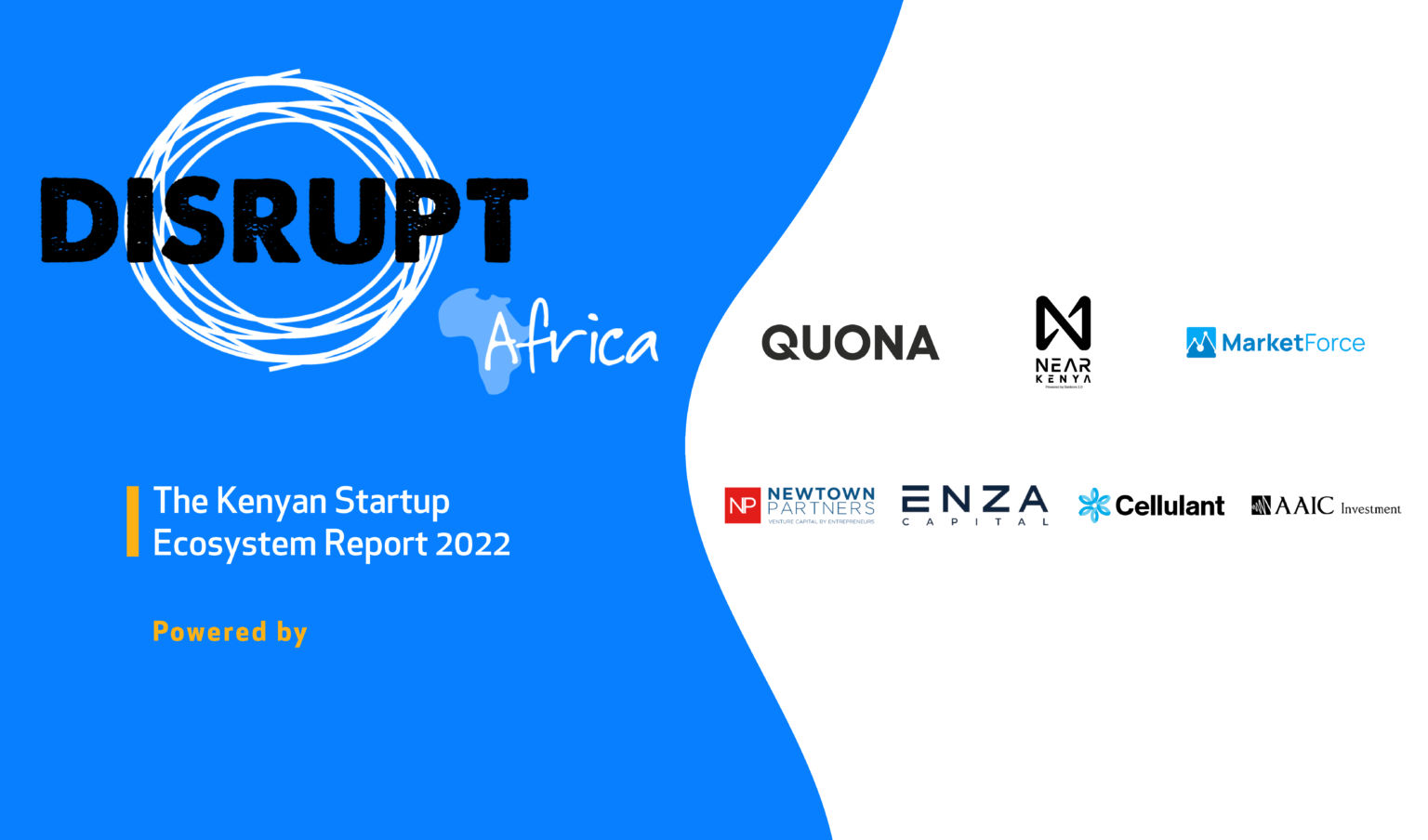Kenyan tech ventures have higher rates of acceleration or incubation than their peers in other leading African startup ecosystems, a fact that stems from the country’s extremely well-established startup support scene.
That is according to the Kenyan Startup Ecosystem Report 2022, released by startup-focused news and research company Disrupt Africa last week.
Since launching its research arm in 2016, Disrupt Africa has built up a significant portfolio of publications, most notably the African Tech Startups Funding Report and Finnovating for Africa, available free for all via open-sourcing initiatives with various partners across the continent’s tech ecosystem.
The Kenyan Startup Ecosystem Report 2022, its 19th publication and fourth country-focused report, has been released in partnership with Quona Capital, NEAR Kenya, MarketForce, Newtown Partners, Enza Capital, Cellulant, and AAIC Investment, and is available for free.
It finds that Kenyan startups have access to unparalleled levels of ecosystem support, with almost half the 308 companies tracked by the report having undergone some form of acceleration or incubation over the course of their lifespan. In all, 140 companies have taken part in either a local or an international accelerator or incubator, with this 45.5 per cent figure better than the 45.1 per cent seen in Nigeria, the 38.6 per cent witnessed in Egypt, and the 25.7 per cent rate tracked in South Africa.
Kenyan e-commerce and retail-tech startups are the most likely to have taken part in an accelerator or incubator programme, with 65.5 per cent of the ventures in this sector having done so. In second was logistics (57.1%), blockchain was third (53.3%) and recruitment and HR fourth (52.6%). Conversely, in the fintech sector, the most populated in Kenya, only 37.6 per cent of startups have completed such programmes.
The sizeable number of local options available, as well as the relatively high popularity of Kenyan ventures with pan-African and more international programmes, accounts for the high levels of acceleration among the country’s tech startups.
Kenya has a very strong local startup support ecosystem. From Disrupt Africa’s own research and analysis of others, key among them the Association of Startup and SMEs Enablers of Kenya (ASSEK), the report conservatively concludes there are approximately 150 hubs and co-working spaces across Kenya, primarily focused in Nairobi but also based in the likes of Mombasa, Kisumu, Eldoret and Nakuru.
Key among them are iHub, Nairobi Garage, Nailab, Pawa 254, Dlab Hub (Eldoret), SoteHub (Mombasa), and LakeHub (Kisumu). The first of those, iHub, is a pioneer within Africa’s tech hub industry, having opened its doors in 2010 and played a formative role in the journeys of hundreds of Kenyan startups.
Given the plethora of hubs, many of them very well-established, it comes as no surprise that Kenya, or more specifically Nairobi, has long been a leader in Africa’s acceleration and incubation sector, with active programmes going back as far as any other country. There has, nonetheless, been plenty of churn, but that seems to have settled down in the last few years.
Disrupt Africa estimates there to be approximately 30 private and public incubator and accelerator programmes available to startups in Kenya, again mostly focused on Nairobi but also located – or at least available to startups located – nationwide. Many of these programmes are standalone offerings, while a number of them are run by or in partnership with various hubs and VC firms. Kenyan startups are also regularly accepted into leading international accelerators such as Y Combinator, Techstars, 500 Global, Google for Startups and Facebook Accelerator.
Key among these dedicated programmes, or organisations offering such programmes, are iHub, Nailab, Antler, Pangea, GrowthAfrica, E4Impact, ygap, FoodTech Africa, NINJA Accelerator Kenya, and ShelterTech.
—
The Kenyan Startup Ecosystem Report 2022 is available to all for free, making the data and analysis contained in its pages accessible to those for whom the information is most valuable – entrepreneurs.
The publication, which is the 19th released by Disrupt Research, is over 50 pages in length and provides a detailed overview of the Kenyan startup ecosystem and its development over the last 5-10 years. It involves analysis as to what areas startups are active in, a detailed look at funding and M&A trends, and detail the range of startup support services available to Kenyan entrepreneurs, including hubs, incubators, accelerators, and government, corporate and university initiatives.


